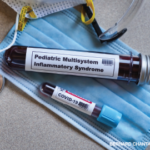Caring for Children with Pediatric Rheumatic Disease
Dr. Wahezi, an associate professor in the Department of Pediatrics and division chief, Pediatric Rheumatology, Children’s Hospital at Montefiore, the Bronx, N.Y., discussed the impact of COVID-19 in children with rheumatic disease and how the pediatric rheumatology community has approached the pandemic.
As of mid-April 2021, the American Academy of Pediatrics reported over 6 million cases of COVID-19 among children in the U.S., which correlates with 13.6% of all cases in the U.S. Less than 2% of pediatric COVID-19 cases required hospitalization, and even fewer resulted in death. These numbers provide reassurance that COVID-19 does not typically affect children as severely as adults.
However, certain subsets of patients may be at increased risk for severe illness. When considering patients with rheumatic disease, the underlying disease and frequent use of immunosuppressive therapy emerged as significant concerns for patients, caregivers and clinicians. With that in mind, many questions developed, such as how COVID-19 affects those with rheumatic disease, how immunosuppression affects risk for severe complications, how to best manage immunosuppressive medications during the pandemic, and concerns about flares of the underlying rheumatic disease.
Dr. Wahezi highlighted these questions and discussed several efforts by rheumatologists to provide answers, including the efforts by the COVID-19 Global Rheumatology Alliance and the ACR to identify risk factors for severe disease and provide guidance for managing adults with rheumatic disease.
The ACR also developed a multidisciplinary task force, led by Dr. Wahezi, to create guidance for managing children with rheumatic diseases during the pandemic.3 Within a month of creating this task force, these guidance statements were drafted, revised, reviewed and accepted by the ACR Board of Directors.
Dr. Wahezi discussed the timeline and steps of this process, including using social media to elicit topics of interest to the pediatric rheumatology community. In the guidance, the task force highlighted that children with rheumatic disease are not necessarily at higher risk for severe complications if infected by COVID‑19 but should adhere to general masking and social distancing practices. In addition, the task force identified special considerations, including the mental health impact of the pandemic on children and their caregivers and the need for continued mental health assessments and providing appropriate resources.
The CDC & WHO definitions of [MIS-C] were designed to capture all cases, which may lead to over-treatment & incorrect diagnoses for some.
Dr. Wahezi also highlighted the advantages of telemedicine, emphasizing its value not only during the pandemic but also beyond. Telemedicine was important early in the pandemic to prevent delays in care and reduce anxiety toward in-person visits. Through the increased use of telemedicine, the pediatric rheumatology community has gained expertise in virtual musculoskeletal assessments using v-pGALS (video pediatric Gait, Arms, Legs and Spine).
Another topic of great interest was how to manage children with rheumatic disease during the pandemic. At the beginning of the pandemic, caregivers, patients and clinicians struggled with decisions on optimal treatment for children with rheumatic disease, and many families had significant concerns about continuing immunosuppressive therapy.
Dr. Wahezi discussed these concerns and the guidance developed by the task force. Ultimately, the data suggest that children with rheumatic disease do not appear to be at risk for severe complications from COVID-19. Thus, the task force emphasized that the primary goal in managing these patients is controlling their underlying disease. In general, the task force recommended continuing or initiating medications as needed for disease control, but allowed for some special considerations for steroids, rituximab, cyclophosphamide and symptomatic COVID-19 infections. Importantly, the pediatric guidance differs from the adult guidance statements in the setting of COVID-19 exposure and asymptomatic infection, suggesting a preference for optimizing control of the rheumatic disease.
Dr. Wahezi then reviewed the most recent observational studies, which continue to show no significantly increased risk of severe COVID-19 complications in children with rheumatic disease. She also discussed upcoming modifications of the ACR guidance statements. She reported the statements will continue to emphasize the importance of mental health assessments and the role of telemedicine, but they will also address updates regarding COVID-19 vaccination and monoclonal antibody therapy, and include new guidance on reinitiating medications post-symptomatic COVID-19 infection.



